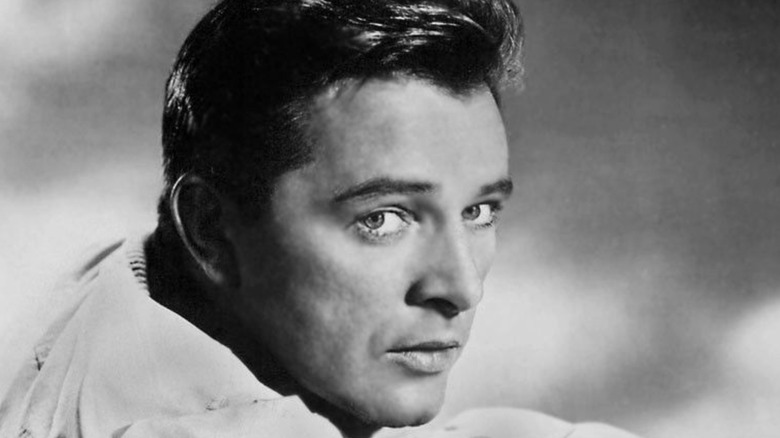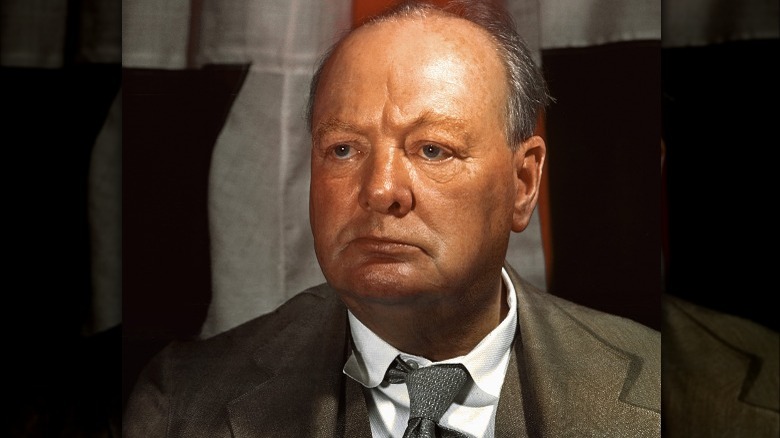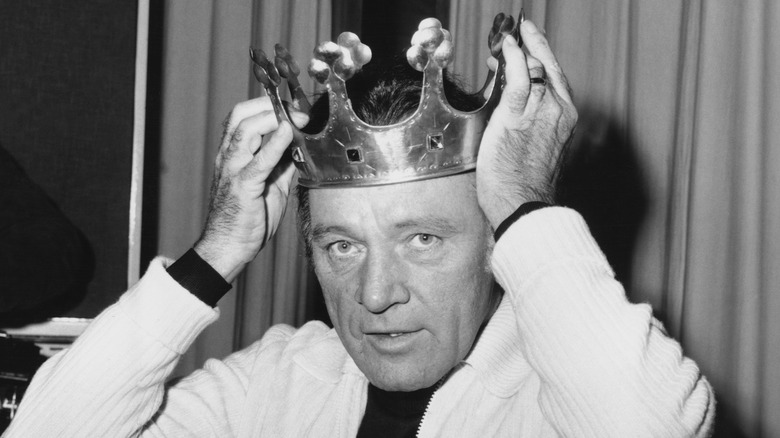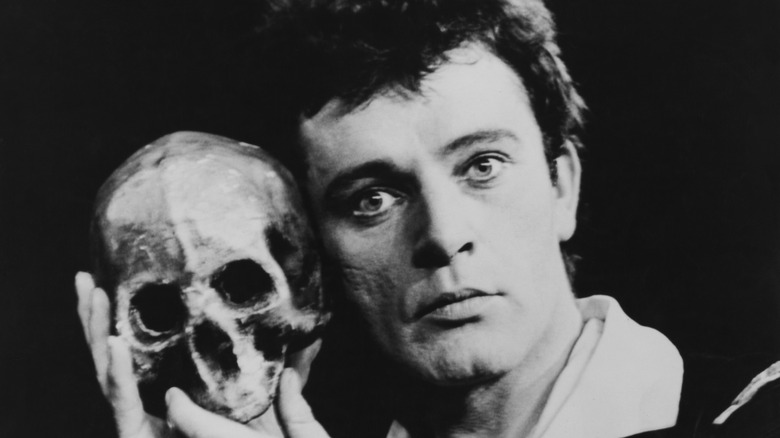What Did Richard Burton Really Think About Winston Churchill?
In 1974, on the centenary of Winston Churchill's birth, the BBC and NBC studios released a film about the great wartime prime minister, "The Gathering Storm," with Richard Burton (above) in the title role. (The film is available at YouTube.) The Welsh actor seemed perfect for the part. Like Churchill, Burton had a deep, growling, unmistakable voice (although he told the BBC that he decided to use his own voice in "The Gathering Storm," to avoid sounding "tiresome" by imitating Churchill's). But beyond his voice, Burton was a kind of Churchill of the actors: a man with vast appetites for alcohol and tobacco, powerful, controversial, even disappointing at times, but a titan of his generation.
But similar as the two men were, Burton had a complicated relationship with the man he played on screen. On the one hand, Burton admired Churchill. According to the Churchill Project at Hillsdale College, Churchill's former secretary, who worked on the film, said, "I had the impression that Richard worshiped Sir Winston." Yet in 1974 Burton himself wrote in The New York Times, "I hate Churchill and all his kind."
A Shakespearian figure
Churchill (above) played a bigger role in Burton's life than Burton played in his: The first man led Britain in World War II, and the second served in the British military during that conflict. But they met in person for the first time in 1953. Burton was playing the title role in "Hamlet" at the Old Vic in London. One night during the run, he looked down from the stage and saw Churchill seated in the front row. As Burton told it, Churchill recited all of Prince Hamlet's lines at the same time as Burton, loud enough to be heard on stage. He even made sure Burton knew that he knew when lines had been cut out. At the intermission, Churchill popped backstage to visit Burton in his dressing room, and asked to use his bathroom — or so Burton said (via BBC).
Not long later, Burton would play Churchill as a voice actor in a BBC documentary called "The Valiant Years." He became known for his recitations of Churchill speeches, as if they were Shakespearian soliloquies, like the "Blood, Sweat, and Tears" speech he recited on Michael Parkinson's talk show (available on YouTube, beginning at 36:22).
'A bogeyman who hated us'
Why, then, would Burton write so publicly that he hated Churchill? We might chalk up part of it to Burton's own thorny personality and love of fighting and provocation. (When Kenneth Tynan interviewed him for Playboy, Burton listed his then-lover Elizabeth Taylor's physical faults, like her "double chin," apparently with her in the room.)
But the antipathy was also a matter of class and politics. Burton was a coal miner's son. He leaned left politically, and although he was a millionaire, he stayed proud of his Welsh, working class origins. "Churchill has fascinated me since childhood," he wrote, "a bogeyman who hated us, the mining class, motivelessly. He ordered a few of us to be shot, you know, and the orders were carried out." That last reference was to the Tonypandy Riots, a coal miners' strike in Wales put down by soldiers sent on Churchill's orders (per BBC). His New York Times op-ed also cited Churchill's responsibility for atrocities in South Asia and elsewhere.
The pain of recognition
Of course, it's not that simple. The Churchill Project notes that Burton (above, as Hamlet) kept a bust of Churchill at his house, calling it one of his "most treasured possessions." He told two of Churchill's grandchildren that he admired "the old man." And if the rumor is true that Churchill chose Burton personally to play him in "The Valiant Years" — "Get me that boy from the Old Vic" — Burton would certainly have known about it, and likely would have been grateful.
The secret may be that Burton saw himself in Churchill: brilliant, domineering, well-spoken, hard drinking, physically imposing, a shameless destroyer of other people's lives. In another interview, with Kenneth Tynan (also on YouTube), Burton said that "The only interesting parts to play are defeated men. That's why the great tragedies are so attractive, I think ... The hero, the one who succeeds, is always faintly boring." Churchill wasn't a defeated man by normal standards — he lived into his 90s, led his country in the war against Hitler, won a Nobel Prize for Literature. But history, in a way, has eaten away at his success. People today are much more aware of his faults: his persistent racism, his indifference to the Bengal Famine, his failure at Gallipoli, his casual misogyny, his callousness in war. Burton was a man burdened with an equal number of personal faults. He drank himself to death, emotionally abused his spouses, wasted his mature talent. The pain of recognition may well have caused his hate.



